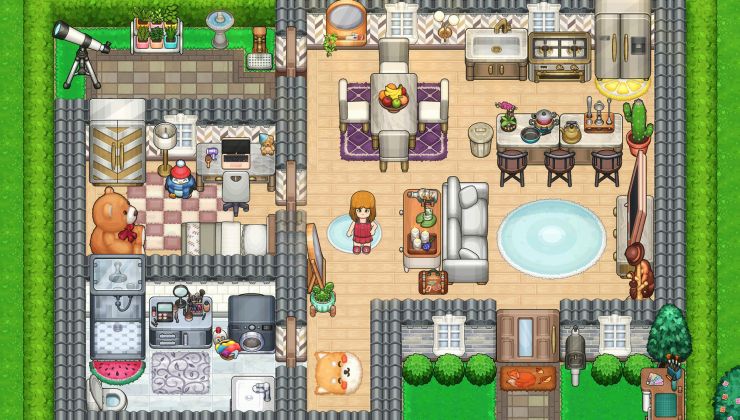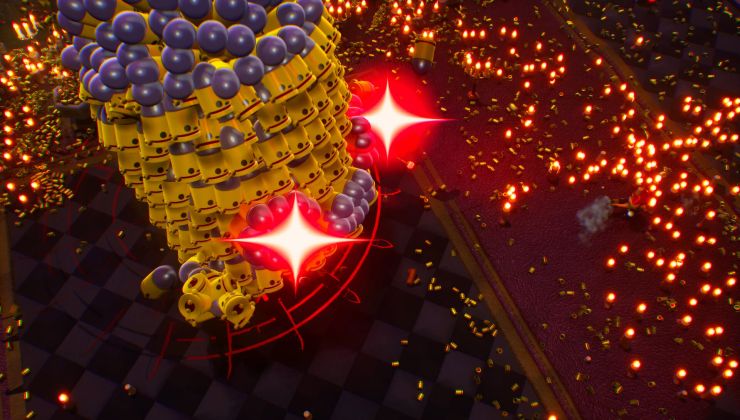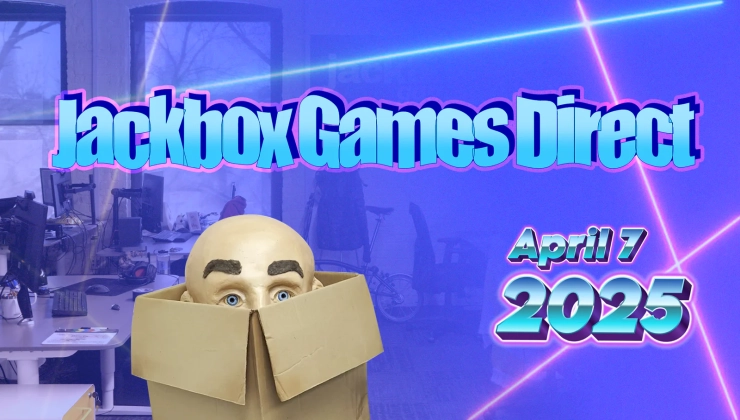It seems Stardock Entertainment are continuing to work on their Linux port of Ashes of the Singularity: Escalation. As a big fan of real-time strategy games, I'm still quite excited to try it out.
In their April 2019 update post, Stardock CEO Brad Wardell posted this:
## Linux ##
So now that GDC is over, I can't really go into much detail but it should be more obvious now why we've been taking Linux support more seriously in all our games. The continued issue is just working with the driver makers to make sure their Vulkan drivers are able to handle what we need them to do. I don't have an ETA on this but we will likely bite the bullet and put out a Linux beta even with the performance challenges (those with high end systems may not have an issue).
When Wardell says it should be more obvious now, they're talking about Google's Stadia which they previously hinted at knowing about, as they said there was a lot of "industry interest in Linux". This latest post was made at the start of April, so considering they're coming up on their next monthly report we might see it on Linux in some rough form soon.
It will be interesting to see if any other developer uses the Linux desktop, as a sort-of testing area for a future Stadia release. That could end up benefiting us quite a lot but I'm not keeping my fingers crossed too tightly on that point.
Hat tip to Jan.
Every time there's something from Stardock about this, it seems like they're worried about something with Vulkan drivers, however have never really said what. RADV is open source; the community is considered the driver maker. Sure, the main developers might have corporate funding, but their work isn't hidden away, and I'm sure if Stardock were working with the community on this, we'd have heard about it. So to me the post doesn't make much sense. I'm still very curious about what the issue actually is.Yeah, I'm pretty curious about it myself. For all we know though, the issue might actually be on NVIDIA's end which is why we're not hearing anything about it. Still, it would be nice if they did give a little more detail.
We want to play games on OUR Linux desktops, not THEIR servers!
Last edited by Kandarihu on 26 Apr 2019 at 10:29 am UTC
If all of this "industry interest in Linux" is just for the sake of games-as-a-service systems like Stadia, then they've been using us all along. I have been supporting Linux gaming for the sake of increasing freedom for the consumer, not for pushing some unaccountable streaming system where the publisher has absolute control over every individual instance of the game. If we want to see gaming on our own desktops, we need to amend our cries.Unless a couple of the biggest desktop manufacturers decide out of charitable impulses to do a big push where they sell all their models with Linux on board for cheaper and market the hell out of this fact, people using us is the best we're going to get. I'm not going to complain as long as there's some decent prospect of us using them back.
We want to play games on OUR Linux desktops, not THEIR servers!
It's amazing what Vulkan is able to pull off with these specs.
DOOM + Wolfenstein II are smooth as butter with FullHD+.
I guess the issue is rather on Stardock's side.
At this rate Star Citizen will be done before they get this ready :P
I was so excited for this game all those years ago. I've given up hope that this will ever have a native Linux version. Although, this would be a great game for Google Stadia :)
If all of this "industry interest in Linux" is just for the sake of games-as-a-service systems like Stadia, then they've been using us all along. I have been supporting Linux gaming for the sake of increasing freedom for the consumer, not for pushing some unaccountable streaming system where the publisher has absolute control over every individual instance of the game. If we want to see gaming on our own desktops, we need to amend our cries.Unless a couple of the biggest desktop manufacturers decide out of charitable impulses to do a big push where they sell all their models with Linux on board for cheaper and market the hell out of this fact, people using us is the best we're going to get. I'm not going to complain as long as there's some decent prospect of us using them back.
We want to play games on OUR Linux desktops, not THEIR servers!
Yes, I'm also seeing this as a win-win. I'm still convinced that pushing Steam Play/Proton to the Linux Desktop is in fact the beta run for the groundwork of Valves future streaming services (Though I could be very wrong). I'm glad to be their beta tester ;)
If all of this "industry interest in Linux" is just for the sake of games-as-a-service systems like Stadia, then they've been using us all along. I have been supporting Linux gaming for the sake of increasing freedom for the consumer, not for pushing some unaccountable streaming system where the publisher has absolute control over every individual instance of the game. If we want to see gaming on our own desktops, we need to amend our cries.
We want to play games on OUR Linux desktops, not THEIR servers!
Yeah the whole games as a service thing sucks. On the other hand, anything that drives developers to developing for linux is an overall positive thing.
If all of this "industry interest in Linux" is just for the sake of games-as-a-service systems like Stadia, then they've been using us all along. I have been supporting Linux gaming for the sake of increasing freedom for the consumer, not for pushing some unaccountable streaming system where the publisher has absolute control over every individual instance of the game. If we want to see gaming on our own desktops, we need to amend our cries.
We want to play games on OUR Linux desktops, not THEIR servers!
Yeah the whole games as a service thing sucks. On the other hand, anything that drives developers to developing for linux is an overall positive thing.
That can be positive. I am pretty sure, that we will never see Linux binaries for e.g. Ubisoft Titles.
On the other hand, the driver situation gets better and the more familar developers get with Vulkan and Linux the better.
They should probably release it and let the community do its thing, it would be really nice to have another benchmark to optimize against, that stresses out different parts of the stack.
That is, as long as they do not try to do some funky stuff to work around performance issues.
If they are targetting Stadia first, it seems strange to interact with nvidia, so that would likely be for a desktop target.
If they are working with AMD on that, chances are they are working with AMDVLK, which is the only driver officially supported, though I must admit it generally offers a subpar experience as compared to RADV.
On the bright side, the desktop platform is a nice stress test before porting to stadia, and gives developers lots of "beta testers" ('cause that's what gamers are, nowadays). And if most of the porting work is already done, we should probably see more titles anyways, so that's a win.
Plus, as stated by einherjar, more game developer experience is always a plus.
Every time there's something from Stardock about this, it seems like they're worried about something with Vulkan drivers, however have never really said what. RADV is open source; the community is considered the driver maker. Sure, the main developers might have corporate funding, but their work isn't hidden away, and I'm sure if Stardock were working with the community on this, we'd have heard about it. So to me the post doesn't make much sense. I'm still very curious about what the issue actually is.
Which I conclude means the issue is not with radv or amdvlk, but with some blob. Or Stardock aren't used to dealing with the idea of open drivers.
Doesn't seem like Stardock want to give any more details, I asked which vendor they were having issues with and what the issues were. The response was "We're working with both of them on it. Making iterative improvements." - so basically, nothing.
Oh, this indicates their issues are with amdvlk, and not with radv. Since radv isn't controlled by the vendor. And that makes sense, since Stadia is using amdvlk. It also shows that they possibly don't even test it on radv to begin with.
Last edited by Shmerl on 28 Apr 2019 at 5:10 pm UTC
As for Stardock, they are coming from the common closed source development mentality, and probably are totally not used to open development model with public bugs and so on. That's why they are eager to talk to "vendors", but there is zero communication from them on any public Vulkan bug trackers.
Last edited by Shmerl on 28 Apr 2019 at 9:28 pm UTC












 How to set, change and reset your SteamOS / Steam Deck desktop sudo password
How to set, change and reset your SteamOS / Steam Deck desktop sudo password How to set up Decky Loader on Steam Deck / SteamOS for easy plugins
How to set up Decky Loader on Steam Deck / SteamOS for easy plugins
See more from me